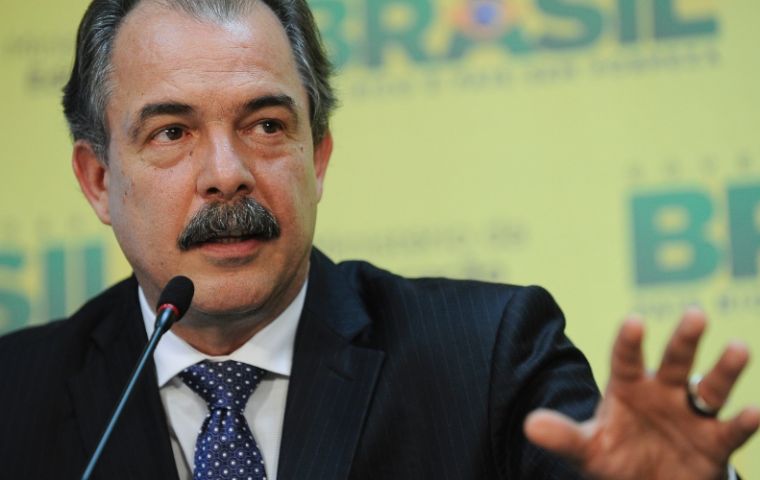MercoPress. South Atlantic News Agency
Brazil: understanding with Congress to hold a reforms’ plebiscite on 7 September
 Education minister Marcadante is acting as the bridge builder among the different interests of the shaken political system
Education minister Marcadante is acting as the bridge builder among the different interests of the shaken political system The Brazilian executive apparently has reached an understanding with the presidents of the Senate and the Lower House, Renan Calheiros and Henrique Eduardo Alves for a plebiscite with several questions referred to changes in electoral and party legislation, and eventually the Constitution relative to the political organization of South America’s largest country and powerhouse.
The questions are to be discussed in coming days in a joint effort headed by the Planalto Palace. Likewise leaders of all parties in congress, from the ruling coalition and opposition will be invited to take part in the expanded discussions, headed by President Rousseff, according to Education Minister Aloizio Mercadante who participated in the evening meeting held at the seat of the Executive.
The consensus reached on Tuesday means the idea of a formal constitutional assembly has been dropped for a ‘constitutional process’, argued Mercadante. The original idea of a constitutional assembly was openly rejected by the political system and the Judiciary.
“Yes, we have a constitutional controversy” admitted Mrcadante, but ‘convergence was reached referred to a plebiscite”.
This in practical terms means that President Rousseff has the support from the heads of the two Houses of Congress to make possible a plebiscite in such a way that the electoral legislation amendments can be defined by next October, and ready to be implemented in next year’s election.
The first steps of such a process will begin on Wednesday when envoys from President Rousseff will consult with the president of the Superior Electoral Tribunal, Minister Carmen Lucia. The purpose is to agree on possible operational dates for holding the plebiscite. The initial idea and a symbolic date would be on 7 September, Ipiranga Day or Independence Day.
For over two weeks Brazil has been rocked by spontaneous demonstrations that started in Sao Paulo and Rio do Janerio to complain transport fare hikes and have extended to over a hundred cities with further demands regarding education, healthcare, corruption of the political system, lavish spending to host the 2014 World Cup and 2016 Olympics and a more fair and equal society.
At first the political system though it could manage the situation but rapidly governors and mayors had to roll back bus fares, and pledge long pending reforms as streets kept filling with middle class hard working protestors. Surprise turned into shock and quick understandings to find a way out of the social unrest.




Top Comments
Disclaimer & comment rules-

-

Read all commentsOh dear, Dilma is clearly worried but what she offers has no 'magic' to it that will somehow persuade the protestors that things are really going to change.
Jun 26th, 2013 - 11:39 am 0Instead of this talking shop the answer is clear: get the ‘Magistrate’ (still cannot get used to that diminutive term for a judge) to be her right hand man to tackle the problem at all levels of the administration whilst sorting the transport situation out in the light of the reasonable claim that all the ‘Big World’ trappings with the football nonsense, et al, have taken the money away.
Dilma’s first big test and she looks like she is blowing it at the moment.
I agree.
Jun 26th, 2013 - 07:17 pm 0Would be good to have more informed comment from Brasilians.
Commenting for this story is now closed.
If you have a Facebook account, become a fan and comment on our Facebook Page!